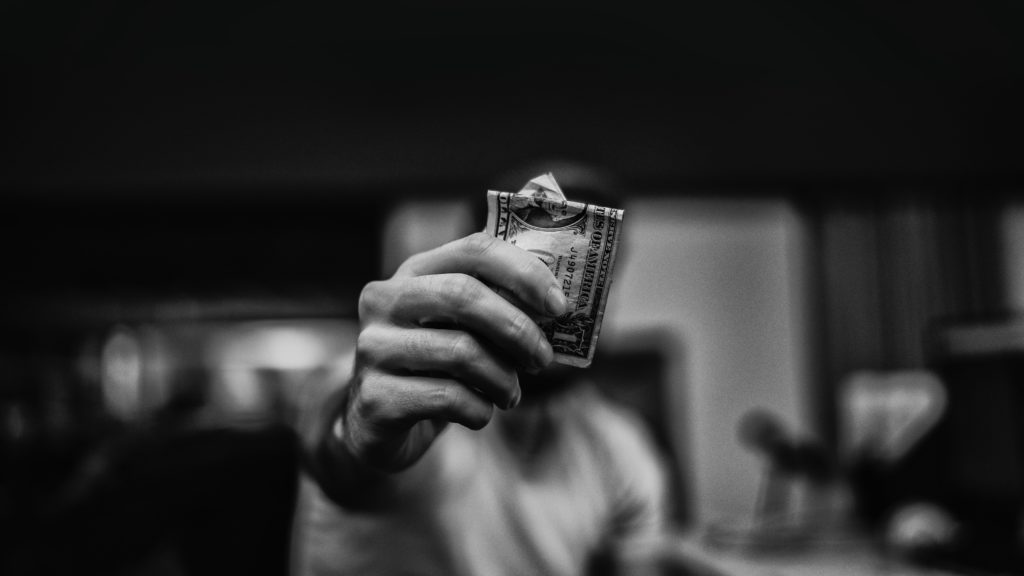THE MARKETPLACE HAS BEEN REPLACED
John 2:13-22
Third Sunday in Lent
Analysis by Timothy Hoyer
13The Passover of the Jews was near, and Jesus went up to Jerusalem. 14In the temple he found people selling cattle, sheep, and doves, and the money changers seated at their tables. 15Making a whip of cords, he drove all of them out of the temple, both the sheep and the cattle. He also poured out the coins of the money changers and overturned their tables. 16He told those who were selling the doves, “Take these things out of here! Stop making my Father’s house a marketplace!” 17His disciples remembered that it was written, “Zeal for your house will consume me.” 18The Jews then said to him, “What sign can you show us for doing this?” 19Jesus answered them, “Destroy this temple, and in three days I will raise it up.” 20The Jews then said, “This temple has been under construction for forty-six years, and will you raise it up in three days?” 21But he was speaking of the temple of his body. 22After he was raised from the dead, his disciples remembered that he had said this; and they believed the scripture and the word that Jesus had spoken.
DIAGNOSIS: Buying and Selling Is Normal
Step 1: Initial Diagnosis (External Problem): To Us, All Looks Normal
Grounding: The leader of the synagogue was responsible for keeping order, so he demanded that the rules be followed—at all cost. All that mattered was obeying the laws.
Tracking: Selling is one side of the action, buying is the other. To make up for something we did that hurt another, we will buy a gift—flowers, dinner, a special gift. We think we can buy our way back into good graces as if it were for sale. We also say, “The punishment must fit the crime.” Still, no one thinks anything is out of place. Paying for our mistakes is normal.
Step 2: Advance Diagnosis (Internal Problem) We Trust the Marketplace
Grounding: think a marketplace is the normal way for a temple to work is to trust (have faith in) the marketplace. Buying and selling make sense. We become wise when we can earn a living from buying and selling.
Tracking: We use buying and selling to deal with God. We buy a favor from God because we trust that God sells favors. We bargain: “God, if you do this for me, I promise I will be in church every Sunday from now on.” When we feel that we owe God something, we deal with our wrongs to God by paying penance, saying so many prayers, giving extra to the church. Surely if we do good things we will be compensated for doing them. That is normal. That is human wisdom.
Step 3: Final Diagnosis (Eternal Problem): We Can’t Buy Our Way Out of Death
Grounding: But God destroys the wisdom of the wise (see the second reading from 1 Corinthians 1:18-25). Doing what is wise brings wrath (Romans 4:15). With wrath comes death; and no buying of cattle, sheep, or doves can stop it.
Tracking: No matter how much we try to do the smart thing, we die. After all, “what can we give in return for our life?” (Mark 8.37). The buying and paying system—the marketplace—does not work in God’s economy.
PROGNOSIS: The Free Gift of Grace Is God’s Foolishness
Step 4: Initial Prognosis (Eternal Solution): The Cross Isn’t Bought
Grounding: Jesus upends the marketplace. He puts an end to buying and selling. He puts an end to the way of the law. That is his cross. How can he do that? He is asked, “What sign can you show us for doing this?” (John 2:18). His sign is that three days after he is destroyed, he rises up. His rising is the power of God and the wisdom of God. It may seem foolish to us that God raises up what was condemned, but God is foolish by ending death with mercy. God closes the door on what humans think normal.
Crossing: Jesus is God’s gift to us; he is not something to be bought or sold in a marketplace. Jesus gives up his life, losing it, forfeiting it, squandering it. He goes to a cross that appears to make no sense, intent to gain (or buy) something: us. He loses his life, that we may gain ours. If we are looking for greatness or a winner in the cross, we will struggle. To us, a cross is worthless. It’s hard to buy.
Step 5: Advanced Prognosis (Internal Solution): The Cross Is Given to Us
Grounding: When Jesus rose from the dead, his disciples remembered what he had said, and they believed Jesus.
Crossing: We too are told Jesus rose for us. Jesus freely gives (does not sell) us his promise of life with God. (We don’t have to—and can’t—buy it). Instead of a marketplace, we are invited to a table filled with an abundance of grace and sent home with gifts to use to benefit the world. Foolish, yes, but wonderful!
Step 6: Final Prognosis (External Solution): We Give Grace to One Another
Grounding: Jesus did not want his Father’s house to be a marketplace. Our place with God does not depend on what we can buy or do. Jesus came to us full of grace (John 1:14, 17). The temple was to be a place one was simply welcomed into, a place one could simply walk into and be given forgiveness.
Crossing: When we approach God, we no longer live by selling and buying. We no longer assume that we can or have to make up for what we did wrong. We seek the gift of forgiveness. We give the gift of forgiveness. And then we work with the one to whom we are reconciled by repairing what was broken—giving love where love got lost, giving peace where there was fear and worry. Yes, it is foolish, but it is God’s foolishness to be merciful.





You must be logged in to post a comment.